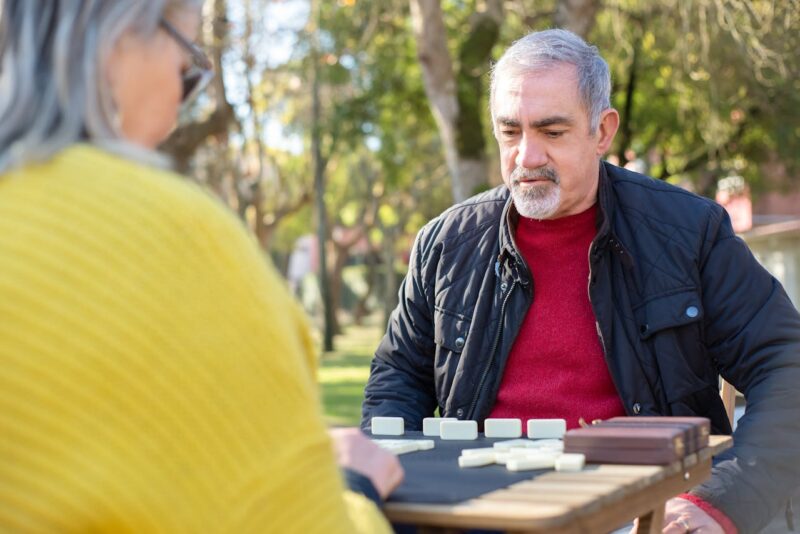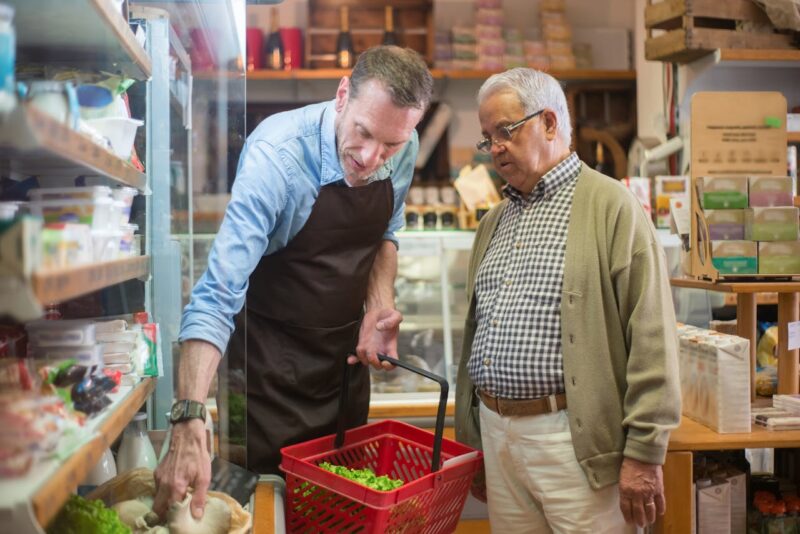
Ever wondered what impact social interaction has on the well-being of our elderly loved ones? Loneliness and isolation can take a toll on their mental and physical health. Engaging in social activities can boost their mood, cognitive function, and overall quality of life. But why is social interaction important for the elderly? Let’s delve into the benefits it offers and how it plays a vital role in promoting a sense of belonging and happiness in their golden years.
Why Socializing Matters for Elders
Combatting Isolation
Loneliness and isolation can significantly impact the mental and physical health of seniors. Regular social interaction at a senior center helps combat these feelings among elderly people in later life.
Socializing provides opportunities for elderly individuals to engage in meaningful conversations, share experiences, and build relationships with others. This can alleviate feelings of loneliness, distress, and boost overall well-being.
Maintaining Cognitive Abilities
Engaging in social activities stimulates the brain and helps maintain cognitive abilities in elderly people. Interacting with peers through games, discussions, or outings can enhance memory, problem-solving skills, and overall mental agility.
Regular social engagement has been linked to a lower risk of cognitive decline and may even help delay the onset of conditions like dementia or Alzheimer’s disease.
Sense of Belonging
Social interaction fosters a sense of belonging and purpose among the elderly. Being part of a community at a senior center allows elderly people to feel valued, appreciated, and connected to others who share similar experiences.
Through group activities, events, and support networks, seniors can find companionship, emotional support, and a renewed sense of purpose in their lives.
Mental Health and Emotional Benefits
Stress and Anxiety Reduction
Social interaction plays a crucial role in reducing stress and anxiety levels in seniors. Regular engagement with others helps in alleviating feelings of distress and promoting a sense of hope. By sharing experiences and thoughts, older individuals, adults, and people can find comfort and support, leading to improved mental well-being.
Mood Enhancement and Positive Outlook
For older adults, socializing is instrumental in enhancing mood and fostering a positive outlook on life. Spending time with friends and family provides a sense of belonging and individual satisfaction. This connection with loved ones can significantly impact emotional resilience, helping seniors navigate challenges with a more optimistic mindset.
Importance of Family Time
The significance of spending time with friends and family cannot be overstated when it comes to improving mental health among older people. These interactions offer a source of care and emotional support that is vital for overall well-being. Clinicians often emphasize the benefits of maintaining strong social connections for older patients, as it can be a determining factor in their quality of life.
Physical Health Advantages
Lowered Blood Pressure
Social interaction plays a crucial role in lowering blood pressure and cholesterol levels among older people. Regular engagement with others can have a direct impact on physical feelings by reducing stress levels, subsequently leading to improved cardiovascular health.
Enhanced Immune Function
Maintaining social connections is linked to improved immune function in seniors. By interacting with others, older individuals can boost their body’s ability to fight off illnesses and infections, thereby enhancing their overall well-being and attribute to better health outcomes.
Longevity and Well-being
The importance of strong social ties cannot be overstated when it comes to promoting longevity and overall physical well-being for older people. Seniors who engage in regular social activities tend to lead more active lifestyles, which contribute to better physical health and increased access to resources that support their well-being.
Strategies for Enhancing Social Connections
Encouraging Participation
Encourage elderly people, including older patients, to engage in social activities by organizing group outings to local parks or community centers. Facilitate social communication by hosting regular gatherings where elderly members can interact and share stories.
Embracing Technology
Introduce modern technology to help elderly people, especially older individuals, stay connected with loved ones through video calls and social media platforms. Teach them how to use smartphones and computers for communication, fostering connections beyond physical barriers.
Community Engagement
Participating in community events, clubs, and volunteering opportunities can significantly boost social activity levels among the elderly. By joining clubs or volunteering at local organizations, seniors can meet new people, make close friends, and combat feelings of loneliness.
Hire Companion Care
Companion care for seniors in Vancouver offers a lifeline for those facing loneliness and low social interaction. With personalized attention, social activities, and meal assistance, seniors can enjoy companionship tailored to their needs. By exploring options such as home visits, outdoor walks, or recreational activities, seniors can find the perfect companion to brighten their days. Don’t let loneliness take over – reach out for companion care services today!
Closing Thoughts
Now that you understand the significance of social interaction for the elderly, it’s time to take action. By prioritizing social connections for your loved ones or yourself, you can enhance mental well-being, physical health, and overall quality of life. Implement the strategies discussed to foster meaningful relationships and combat feelings of isolation. Remember, a simple conversation or shared activity can make a world of difference in someone’s day.
Investing in social interactions is investing in a healthier and happier future for seniors. Reach out to them, engage in activities together, and create lasting memories. Your efforts will not only benefit their well-being but also strengthen the bond between generations. Make a difference today by valuing and nurturing the social connections that enrich our lives.
Frequently Asked Questions
Why is social interaction crucial for the elderly?
Social interaction is vital for the elderly as it helps combat loneliness, boosts mental well-being, and enhances overall quality of life. Regular social engagement can prevent cognitive decline and promote emotional resilience.
What are the mental health benefits of socializing for seniors?
Socializing improves seniors’ mental health by reducing feelings of isolation, depression, and anxiety. It fosters a sense of belonging, purpose, and provides opportunities for intellectual stimulation through conversations and shared experiences.
How does social interaction benefit the physical health of the elderly?
Engaging in social activities can lead to improved physical health outcomes for the elderly. It encourages them to stay active, maintain mobility, and may even lower the risk of certain chronic conditions such as heart disease or high blood pressure.
What strategies can be employed to enhance social connections among older adults?
To boost social connections among older adults, encourage participation in group activities like book clubs or exercise classes. Utilize technology for virtual interactions if in-person meetings are challenging. Volunteer work and community events also offer great opportunities for social engagement.
What broader impact does social interaction have on the overall quality of life for seniors?
Regular social interaction positively impacts various aspects of seniors’ lives beyond just mental and physical health. It contributes to increased happiness, a sense of fulfillment, stronger relationships with others, and a more vibrant and meaningful existence in their later years.



